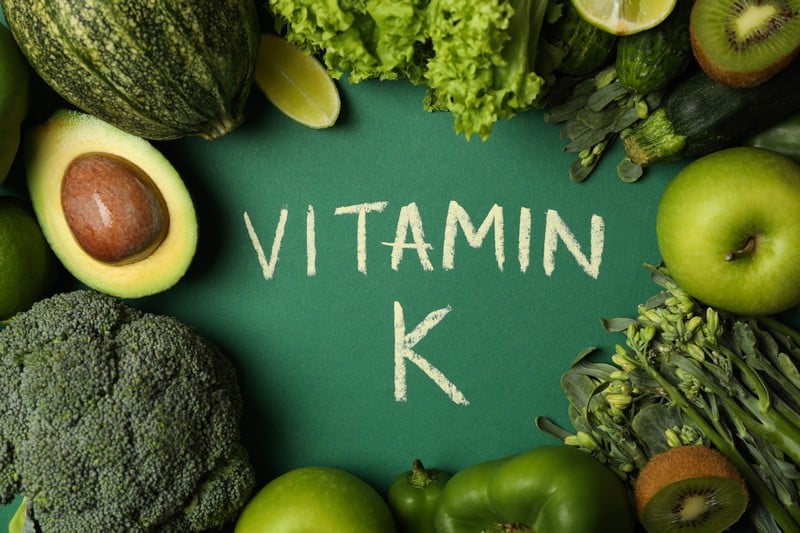Vitamin K (Phytonadione) Deficiency

Yet another cause of excessive bleeding resulting from the body’s inability to form blood clots is believed to be Vitamin K (Phytonadione) deficiency. Vitamin K refers to a group of fat-soluble vitamins that are important for proteins involved in coagulation, bone development, and cardiovascular health. It is an essential nutrient in 2 forms: vitamin K1 or phylloquinone and vitamin K2 or menaquinone. This vitamin that plays a massive role in blood clotting comes from food (green leafy vegetables) or is synthesized by the gram-negative bacteria in the intestines.
In terms of use, vitamin K is formed as y-Carboglutamic acid oxidizes and forms calcium-binding proteins essential for blood clotting factors 2, 7, 9, and 10. With vitamin K, these blood clotting factors react with enzymes responsible for converting the inactive forms of these clotting factors into an active state. Once activated, it is only then that these clotting factors can help the body seal off injuries when needed. A deficiency in Vitamin K may lead to reduced activity of these blood clotting factors, which may result in severe bleeding for a long time. In particular, a lack of Vitamin K may lead to lower levels of activity of clotting factor 9, which is precisely what hemophilia B is all about.










